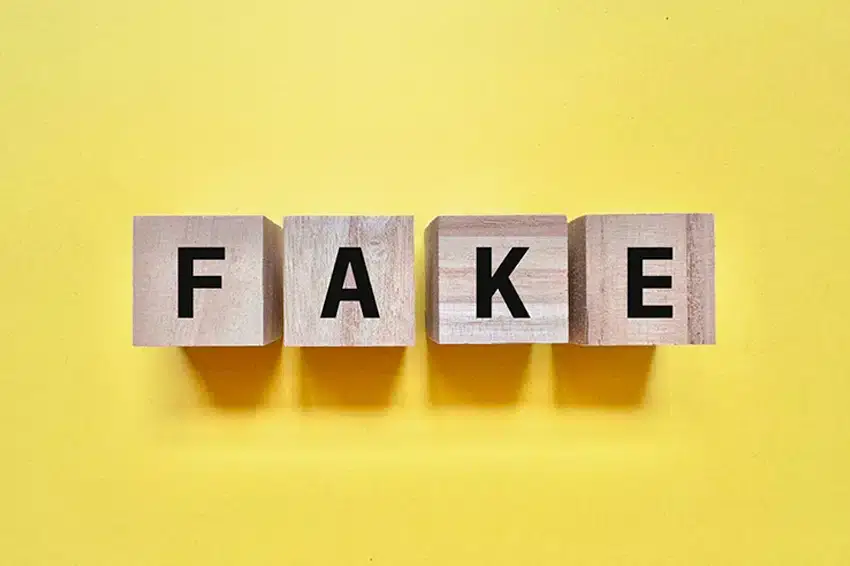Can It Be a Crime to Publish Someone's Name Without Permission? Explaining Cases Where Personal Information Was Exposed

In today’s world, the proliferation of the internet and social media has made it possible for anyone to easily disseminate information. However, this comes with the need for meticulous attention to the handling of personal information. Many people are curious about the potential legal consequences when someone else publishes their name without consent. It is also a reality that some individuals may not know how to respond when their name is exposed and may end up neglecting the issue.
This article will introduce the risks associated with leaving personal information, such as names, published without permission on the internet or social media. It will also provide concrete examples to explain how to handle such situations and what legal responsibilities can be pursued.
Unauthorized Publication of Names Constitutes a Violation of Privacy Rights

Posting personal information, such as someone’s real name, on the internet or social media without their consent can potentially infringe upon privacy rights. Privacy rights are rights that everyone possesses, protecting individuals from having their personal life information published without permission. These rights safeguard a person’s private sphere and can be considered a crucial human right that serves as the foundation of individual rights.
Privacy rights are one of the fundamental human rights guaranteed by the interpretation of Article 13 of the Japanese Constitution, although not explicitly codified in law. They have been established through constitutional interpretation and judicial precedents. Acts such as posting someone’s name on the internet without their consent infringe upon the private sphere and publish personal life information, thus potentially violating privacy rights.
Cases Where Posting Someone’s Name Without Consent Becomes Illegal

While an infringement of privacy rights alone does not immediately constitute illegality, there are cases where criminal charges can be applied based on the content exposed and the context in which it was posted.
We will explain the instances where posting someone’s name on the internet without their consent can be subject to criminal charges, including examples of applicable Japanese criminal law provisions.
Application of Criminal Law for Defamation and Insult
Posting content on the internet or social media that not only includes someone’s name but also defames or insults them can lead to criminal penalties under the Japanese Criminal Law for defamation (Article 230) and insult (Article 231), in addition to violating privacy rights. Defamation is defined as follows:
“A person who publicly presents facts and damages the reputation of another person, regardless of the truth of those facts, shall be punished by imprisonment with work for not more than three years or a fine of not more than 500,000 yen.”
Reference: Evolution of the Provisions on Insult and Defamation Crimes | Ministry of Justice[ja]
Furthermore, the crime of insult is defined as follows:
“A person who publicly insults another person without presenting facts shall be punished by detention or a petty fine.”
Reference: Evolution of the Provisions on Insult and Defamation Crimes | Ministry of Justice[ja]
In other words, if someone’s name is posted on the internet or social media without their consent, and they are defamed or insulted in this public space, there is a possibility of facing criminal charges for defamation or insult.
Revenge Porn
Posting sexual images or videos of someone on the internet without their consent, along with their name, constitutes a violation of the ‘Act on the Prevention of Damage Caused by the Provision of Private Sexual Image Records’ (commonly known as the Japanese Revenge Porn Prevention Act), and is subject to criminal penalties. The establishment of revenge porn does not discriminate by gender, meaning that not only women but also men can be victims.
Related article: What is the Revenge Porn Law? Explaining the Penalties and How to Respond[ja]
There are Cases Where Exposing Personal Information Does Not Constitute a Crime
We previously mentioned that posting someone else’s personal information, such as their name, on the internet or social media without permission can be a criminal act. However, not all acts of exposing personal information are criminal.
It is clear when the content of a post is an obvious case of defamation or when it includes sexual images, but there are instances where it is difficult to determine whether the act meets the criteria for a crime. Simply infringing on the right to privacy does not immediately result in criminal penalties, so it is essential to carefully assess whether the act can be prosecuted.
Common Examples of Personal Information Exposure on the Internet and Social Media

We will explain actual examples commonly seen on the Internet and social media where personal information of others is exposed. These incidents may occur in a moment of emotion or by an unintentional slip, but we will discuss several instances where exposing personal information is considered illegal.
Publicizing Real Names Alongside Defamation
Exposing someone’s real name and posting defamatory content or content that lowers their social status can lead to accusations of defamation. Specific examples of such posts include:
- 〇〇 is on the brink of bankruptcy due to massive debts from consumer lending (loan sharking).
- 〇〇 has been arrested for theft by the police in the past.
- 〇〇 actually cannot study at all and has failed all subjects in the exams, leading to being held back a year.
As illustrated above, cases where defamation is established involve publicly exposing a person’s real name with the intent to lower their social evaluation by revealing specific matters. Whether the content of the posted facts is true or false does not affect the establishment of defamation, but the facts must be of a certain level of specificity.
Publicizing Nuisance Behavior or Troubles
In recent years, there has been an increase in cases where people capture nuisance behavior or troubles on platforms like X (formerly Twitter) and publish them out of a sense of justice. Even if the fact that the other party is engaging in nuisance behavior is true, the content of the post could still lead to defamation charges.
Furthermore, posting images that expose the person’s face without mosaic, not just their real name, can lead to the pursuit of civil liability for invasion of privacy rights and, in some cases, infringement of portrait rights.
Publicly Disclosing Private Exchanges
Publicly disclosing private exchanges between two people, such as DMs (Direct Messages) on social media, LINE, or emails, can also be subject to legal action depending on the case.
Simply posting screenshots of these exchanges on the Internet is not illegal in itself. However, if the content of the disclosed exchange is defamatory, or if the real names are exposed without concealment, there may be a responsibility to answer for such actions.
Challenging Cases in Determining the Legality of Exposing Personal Information

As previously mentioned, exposing personal information such as real names on the internet or social media can be illegal in cases of defamation or revenge pornography. Even if criminal penalties are not imposed, civil liabilities may still be pursued. However, not all acts of exposing personal information are illegal, and there are instances where determining the legality of such actions is extremely challenging.
Real Names of Individuals Operating Anonymously Exposed
Many influencers and authors operate anonymously or under pen names without revealing their real identities. Similarly, individuals working in venues like host clubs or cabarets often use pseudonyms. When such individuals have their real names disclosed against their wishes, it can constitute an invasion of privacy rights.
Real Names Partially Hidden or Initials Exposed
Exposing the real name of a person who operates anonymously by using partial concealment or initials does not necessarily infringe on privacy rights. This is because it is difficult to pinpoint a specific individual with just initials or obscured letters.
However, if other related information is combined with these obscured names or initials, making it easy to identify the individual, it is equivalent to exposing the real name and can constitute an invasion of privacy rights. Furthermore, if the posts contain defamatory content, they could also lead to defamation charges.
Legal Responsibilities that Can Be Pursued for Exposing Personal Information on the Internet and SNS

When personal information such as real names is exposed on the Internet or SNS, not only can it be a violation of privacy rights, but it may also lead to criminal penalties and civil liability for damages. We will explain what kind of legal responsibilities can be pursued if your name is posted and exposed online without your consent.
Criminal Liability through Criminal Penalties
If the posted content includes defamation or insult, it may be possible to seek criminal penalties under the Japanese Defamation Law (Penal Code Article 230) or the Japanese Insult Law (Penal Code Article 231). Defamation is punishable by imprisonment for up to three years or a fine of up to 500,000 yen, while insult is punishable by detention or a petty fine.
Related article: What is the Offense of Insult? Examples of Specific Words and the Difference from Defamation Explained[ja]
Civil Liability through Damage Compensation
If the perpetrator who exposed personal information such as real names on the Internet can be identified, it is possible to pursue civil liability and claim damages. Civil liability is separate from criminal penalties, so even if no criminal penalty is imposed, a court may still order the payment of damages. To identify who exposed the personal information, a legal request can be made through the “Disclosure of Sender Information Request.”
Related article: What is a Disclosure of Sender Information Request? A Lawyer Explains the New Procedures Established by the Amendment and Their Process[ja]
The Risks of Ignoring Personal Information Exposure on the Internet and Social Media

When personal information, such as real names, is exposed on the Internet or social media, it can be troubling to decide what to do. In cases where the content is particularly malicious, there’s a feeling that some action must be taken. However, in instances where the content doesn’t seem as harmful and no real damage is apparent, you might prefer to wait and see how things unfold.
Yet, leaving personal information exposed on the easily accessible Internet can lead to various risks. It’s important not to overlook the potential consequences of inaction.
The Spread of False Information Beyond Personal Data
Leaving personal information such as names exposed can lead to risks beyond just the exposure of personal data; it can also result in the posting of false information and baseless claims. There are cases where, due to the exposure of personal information, speculation leads to the posting of rumors simply because part of a name matches someone else’s.
For example, there have been instances where individuals, unrelated to any incident, have suffered from rumors claiming they were suspects simply because they shared a surname with a road rage suspect or lived near the scene of an accident. In one case, the victim’s company was exposed on the internet as the workplace managed by the father of the road rage suspect, complete with detailed address information, leading to a flood of protest calls from across the country.
Information Spreads Further Through Other Media
There is a risk that personal information will not only remain on the original social media or bulletin board where it was first posted but also be shared on other media, leading to further dissemination. As the information spreads rapidly to other social networks and sites, it can come to the attention of an even larger audience, potentially causing greater actual harm, so caution is necessary.
When personal information is disseminated across many social networks and sites, dealing with it, such as deleting posts, becomes increasingly difficult. Moreover, the more people see it, the higher the risk of the previously mentioned false rumors and lies being further propagated.
Real Harm Arises from Harassment and Pranks
There is an undeniable risk of personal information, not just real names but also addresses and phone numbers, being exposed. This is particularly true in cases where individuals are mistakenly identified as suspects in incidents due to the spread of unfounded rumors, leading to an escalation where even their home and workplace information is revealed.
Once this information is disseminated, the affected individuals may suffer real harm from a barrage of prank calls, protest calls, and mail from all over the country. The situation is extremely troublesome, ranging from cases of mere curiosity and light-hearted pranks to those where individuals, believing in the rumors, make protest calls out of a misguided sense of justice.
Impact on Life’s Milestones
Information published on the internet can easily be accessed by anyone, making it unsurprising if personal details exposed online are seen at any time by someone. Depending on the nature of the exposed information, it could negatively impact pivotal moments in life, such as marriage or employment. For the observer, verifying the truth of the content is often impossible, which means that regardless of its veracity, the impact can be detrimental.
The Imminent Danger to Oneself
When not only your real name but also your home and workplace addresses are exposed, there is a risk that third parties may come to these locations, posing an imminent danger to yourself. It is extremely dangerous because not only the person who exposed your personal information but also those who have seen the information might unexpectedly show up. The arrival of third parties at your home can pose a danger not only to yourself but also to your family members.
How to Deal with the Exposure of Personal Information on the Internet and Social Media

Having your personal information exposed on the Internet or social media can lead to various risks, and if left unaddressed, it could potentially endanger you or your family. Therefore, it is crucial to take action as soon as possible. We will explain how to handle the exposure of your personal information online.
Consult with a Human Rights Consultation Service
The Ministry of Justice offers consultation services such as the “Everyone’s Human Rights 110” hotline and the “Internet Human Rights Consultation Reception” online. If you are at risk of suffering actual harm due to the infringement of your privacy rights or unauthorized exposure of your personal information, it is advisable to seek consultation first.
Request Deletion or Account Suspension from the Posting Platform
If your personal information is exposed on social media or forums, you can request the deletion of the post from the operating company or administrator of the platform where the information was posted. Additionally, you can request the suspension of the account that made the post, which can prevent further secondary damage by freezing the malicious account.
Consult with the Police to Pursue Criminal Liability
If the infringement of privacy rights includes defamation, you can consult with the police to pursue criminal liability. To pursue criminal liability, an investigation by law enforcement agencies is necessary, which requires the submission of a complaint or accusation. For troubles on the Internet or social media, you can also consult the “Cybercrime Consultation Service” established by the police.
Consult with a Lawyer to Pursue Civil Liability
In addition to pursuing criminal liability, you can also pursue civil liability and claim damages. To pursue civil liability, it is recommended to consult with a legal expert, a lawyer.
Consulting with a lawyer can help identify the poster even when their identity is unknown, through a request for disclosure of sender information. Furthermore, a lawyer can provide advice on points to consider when pursuing civil liability against the poster and offer specialized guidance.
Summary: When Your Name or Personal Information is Exposed, Consult Immediately

Posting someone’s name or personal information on the internet or social media without consent is a violation of privacy rights and can lead to criminal and civil liabilities. If your information, such as your name, has been exposed on the internet without your permission, it is unclear what risks may arise in the future, even if there is no immediate damage.
In the worst-case scenario, this could directly endanger you or your family. If your personal information, including your real name, has been posted without your consent, please consult with a lawyer immediately. By seeking advice promptly, you can appropriately prevent any potential harm or escalation of damage.
Guidance on Measures by Our Firm
Monolith Law Office is a law firm with extensive experience in IT, particularly in both the internet and legal fields. In recent years, information related to reputational damage and defamation spread online has caused serious harm as a ‘digital tattoo.’ Our firm provides solutions to combat ‘digital tattoos.’ Please refer to the article below for more details.
Areas of practice at Monolith Law Office: Digital Tattoo[ja]
Category: Internet





















